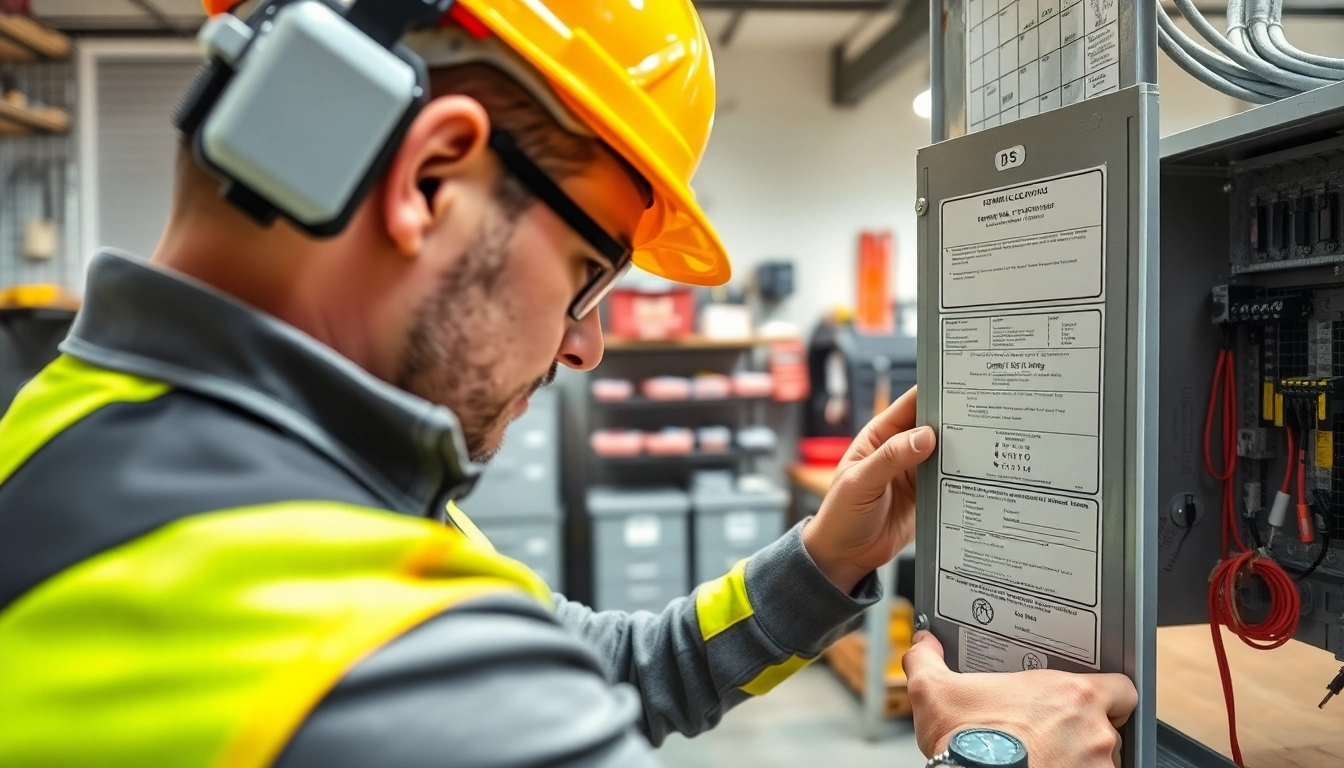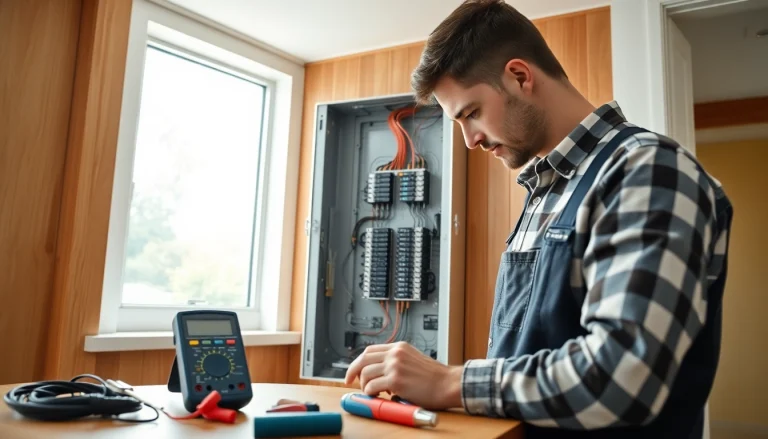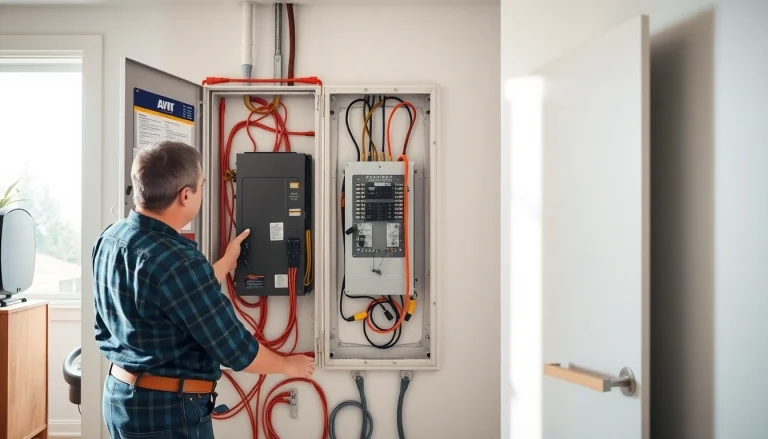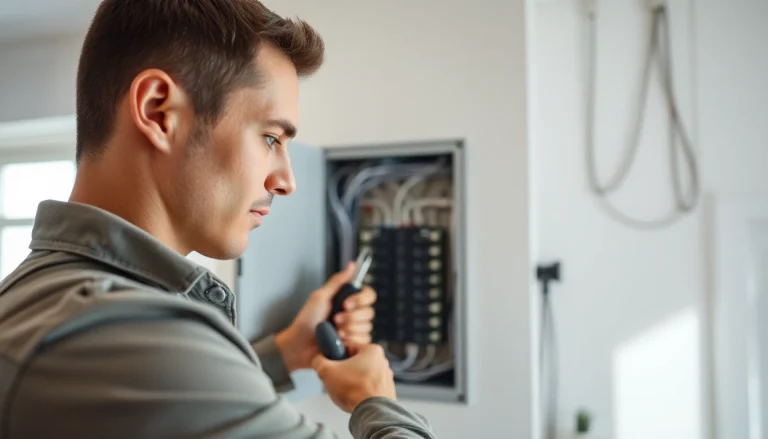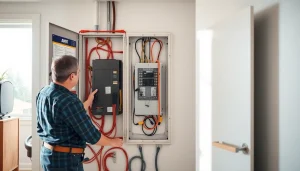Understanding Electrical Panel Upgrades
Electrical panels are critical components of any home’s electrical system. They serve as the main hub for distributing electricity through your home, managing circuit loads and ensuring safety. As technology and energy demands rise, many homeowners find themselves asking whether they need to upgrade their electrical panel. In this comprehensive guide on the Electrical Panel Upgrade, we will explore the specifics of panel upgrades, their benefits, how to assess your needs, the costs involved, and much more.
What is an Electrical Panel Upgrade?
An electrical panel upgrade involves replacing an existing electrical panel with a new one that typically has a larger amperage capacity or better technology to meet the demands of today’s appliances and lifestyle. Modern homes increasingly rely on a plethora of electrical devices—from HVAC systems to smart home technology—that require more power than older panels can provision. Upgrading can mean switching to a 200-amp panel from a 100-amp panel, thereby increasing overall electrical capacity.
Key Benefits of Upgrading Your Electrical Panel
Upgrading your electrical panel offers numerous advantages:
- Increased Capacity: A higher amperage panel allows for more electrical power to be distributed throughout the home, accommodating additional appliances and features.
- Improved Safety: Older panels may not have the necessary safety mechanisms like surge protection, grounding capabilities, or compliance with updated codes, which can pose hazards.
- Enhanced Efficiency: Newer panels provide improved energy efficiency, which can lead to reduced electricity bills over time.
- Investment Value: Upgrading your panel can improve your home’s resale value, making it more appealing to potential buyers.
Common Signs It’s Time for an Upgrade
Recognizing the signs that indicate an electrical panel upgrade is necessary can help enhance your electrical system’s safety and performance:
- If circuit breakers often trip during normal use, the panel may not handle the load adequately.
- Unusual Noises or Smells: Buzzing sounds, burning smells, or dimming lights can indicate overloaded circuits.
- Flickering Lights: If lights flicker when appliances turn on, this points to inadequate electrical supply.
- Burnt or Damaged Panel: Visible damage to the panel or wires is a significant safety risk.
- Home Renovations or Additions: Major renovations require more electrical load management, potentially necessitating an upgrade.
Cost Considerations for Upgrading
Breaking Down the Costs of an Electrical Panel Upgrade
The cost of upgrading an electrical panel can vary significantly based on several factors. Typically, a panel upgrade ranges between $800 and $4,000. The following are associated costs involved:
- New Panel Costs: The price for a panel itself can range from $100 to $500 or more.
- Labor Charges: Electricians charge between $50 and $120 per hour, with labor costs often comprising the bulk of the upgrade price.
- Permit Fees: Local building codes usually require permits, which can add to the overall cost.
- Additional Work: If extensive rewiring is necessary, this will further increase the price.
Factors That Affect Upgrade Pricing
Several variables can impact the costs of an electrical panel upgrade:
- Amperage Increase: Upgrading from 100 amps to 200 amps will generally be more expensive than a straightforward swap.
- Location: Geographic location can affect labor costs, as urban areas typically have higher rates.
- Existing Panel Condition: If the current panel is seriously outdated or damaged, additional repair work may be necessary.
- Wiring Needs: Older homes may not have adequate wiring to support new panels, necessitating further upgrades.
Potential Savings from Energy-Efficient Panels
Investing in energy-efficient panels can lead to long-term savings. Modern panels may support smart technology, providing better energy management and allowing you to track usage. This enhanced monitoring can lead to optimized energy consumption and lowered bills. Furthermore, some utility companies offer rebates for upgrading to energy-efficient panels, reducing the upfront costs.
Choosing the Right Panel for Your Home
Types of Electrical Panels Available
When upgrading your electrical panel, understanding the available options can help you make informed decisions:
- Standard Breaker Panels: These are commonly used in residential settings and work with traditional circuit breakers.
- Smart Panels: These allow for tracking and managing usage via smart home systems, enabling better energy efficiency.
- Subpanels: Useful for large homes or properties with additional buildings, subpanels distribute power to specific areas without overloading the main panel.
Factors to Consider in Panel Selection
Choosing the correct electrical panel involves considering several key factors:
- Current Load Requirements: Analyze your home’s current electricity use and future needs, especially with appliances like electric vehicles or home offices.
- Future Expansion Possibilities: Consider whether you might add additional circuits in the future.
- Brand and Quality: Choose reputable brands that offer warranties and customer support.
How to Assess Your Home’s Electrical Needs
To effectively assess your electrical needs, start by determining:
- Electrical Load Assessment: Analyze the wattage of all current appliances, lights, and systems to understand cumulative demand.
- Future Technology Additions: Consider potential future requirements due to planned home improvements or technological growth.
Professional vs. DIY Electrical Panel Upgrades
Why Hire a Professional for Your Electrical Upgrade?
While some homeowners may consider a DIY approach to electrical panel upgrades, it is advisable to hire a professional electrician for various reasons:
- Expertise and Experience: Trained electricians are aware of local codes, safety practices, and have the necessary experience.
- Safety: Working with electrical systems carries significant risks, including shock hazards and fire risks.
- Liability and Insurance: Professional electricians carry liability insurance, offering peace of mind in case of errors during the upgrade.
The Risks of DIY Electrical Work
Attempting to upgrade your electrical panel on your own can lead to numerous dangers:
- Non-Compliance with Codes: There is a risk of violating electrical codes, potentially leading to safety issues and problems when selling the home.
- Injuries: Working with electricity can be extremely dangerous, resulting in serious injuries or even fatal accidents.
- Improper Installation: Incorrectly installed panels can cause equipment damage, fire hazards, and other significant issues.
Finding and Hiring a Qualified Electrician
To find a qualified electrician, consider the following steps:
- Licensing and Insurance: Always confirm that the electrician is properly licensed and insured.
- Experience: Look for electricians with experience in panel upgrades specific to residential installations.
- Reviews and Recommendations: Check online reviews and ask for recommendations from friends or family who have used their services.
Maintaining Your Electrical Panel Post-Upgrade
Regular Maintenance Tips for Electrical Panels
Once your electrical panel has been upgraded, maintaining it is crucial:
- Regular Inspections: Schedule regular inspections to ensure the panel is functioning correctly.
- Cleanliness: Keep the panel clean and free from dust, moisture, or any obstructions.
- Secure Connections: Occasionally check for loose connections and tighten them as necessary.
Addressing Common Issues After Upgrading
After the upgrade, you may encounter some common issues:
- Lights Flickering: If you notice any flickering lights, it could signify loose connections or an inadequate power supply.
- Unresponsive Breakers: Ensure that the breakers are functioning correctly. If a breaker does not reset or frequently trips, consult a professional.
When to Schedule Professional Inspections
It is advisable to schedule professional inspections if you notice any of the following:
- Repeated Breaker Trips: Regularly tripping breakers need to be evaluated by a professional.
- Burning Smells: Any signs of burning or electrical odors should be addressed immediately.
- Major Renovations: Always consult a professional during major renovations that affect electrical systems.
